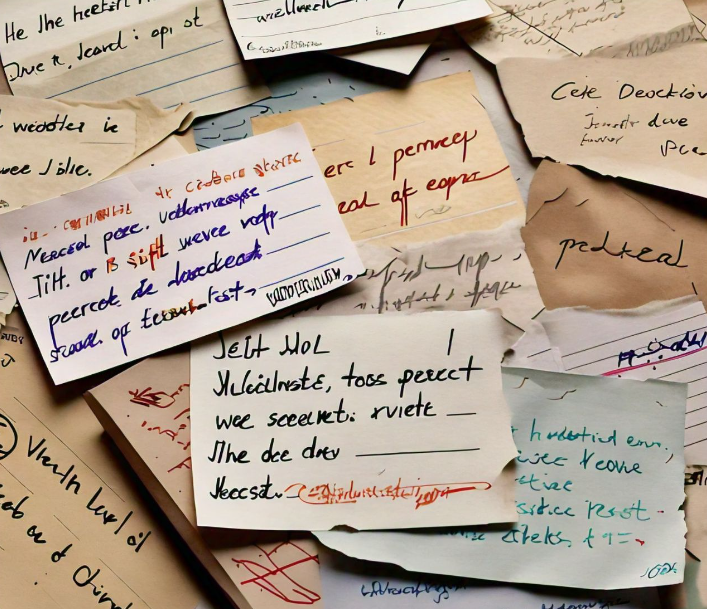Sometimes, the most powerful words are the ones never spoken. A few years ago, I stumbled upon a platform that moved me in ways I couldn’t quite explain. It was called The Unsent Project, a place where anonymous voices pour out their most vulnerable thoughts—thoughts never meant to be read by the people they’re addressed to. One particular message stuck with me: “I miss you. And I’m scared you’ll never know.” It was just a few words, but it opened a floodgate of emotions. Maybe it’s because I, too, had my share of unsent messages.
The beauty of Unsent Project lies in its rawness and honesty. The messages are diverse. Some are filled with love, others with anger, regret, or hope. And the fascinating part? People who submit these messages know they’ll never reach their intended recipients. It’s a paradox of wanting to be heard but not being ready to speak. But which messages stand out the most? What makes some unsent messages resonate deeply with readers? Let’s take a closer look.
The Love Letters That Never Found Their Way
The platform is packed with unsent love messages. Some messages speak of long-lost love, like, “If I could do it all over again, I would choose you every time.” It’s heart-wrenching. Others are much simpler but equally impactful, like, “I still remember how you laughed at my bad jokes.”
These messages remind us that love doesn’t always come with closure. Sometimes, the people we care about most will never know how much we truly feel for them. Love is messy. It’s complicated. And, often, it’s left hanging in the air, like these unsent love messages on the platform.
The Apologies That Will Never Be Heard
Regret eats at the soul, but what if you could put it into words without the fear of rejection?
One of the most striking categories on The Unsent Project is the unsent apology messages. Some apologies for small misunderstandings, while others reflect on massive regrets. “I’m sorry for not being there when you needed me the most. I thought you’d always be around.” This message hit home for so many because it speaks of something many of us fear—letting down the people we love the most.
Apologies can be hard. Fear, shame, or pride may stop us from sending them. But on this platform, people get to confess their wrongs without the burden of confrontation. It’s a form of healing that helps us come to terms with our mistakes—even if the people we’ve hurt will never hear these unsent apology messages.
Messages to Lost Loved Ones
One of the most touching and compelling messages on unsent messages project are those written to people who have passed away. “I wish you could see me now. I think you’d be proud of who I’ve become,” reads one. Another says, “I miss the way you used to hug me. It made everything better.” These messages serve as a reminder that grief is an ongoing process. It never fully disappears, even when we try to push it to the back of our minds.
People use the platform to say the things they could never tell their lost loved ones while they were still alive. These unsent words are often heavy with love, regret, or longing, and they offer a form of release for the people who write them. The compelling unsent messages to the departed show us that love transcends life and death.
Anger and Pain Poured Out in Silence
The Unsent Project also serves as a space for people to let out their rage without consequences. Some of the most passionate messages you’ll find are filled with fury and frustration. “You broke me, and I’ll never forgive you,” one reads. Another spits out, “You left, and you didn’t even care.”
These unsent anger messages serve as an emotional release for people who have been hurt deeply. By typing out their feelings, they purge themselves of the bitterness without having to confront the person who caused it. It’s therapeutic. And for the readers, it can be both relatable and cathartic. We’ve all been angry at someone before, but sometimes it’s easier to scream into the void than to face the people who’ve caused us pain.
Step-by-Step Guide: How to Share Your Own Message on The Unsent Project
If you’ve ever felt the weight of an unsent message sitting on your chest, it might be time to let it go—anonymously. Here’s how you can share your own message on The Unsent Project:
Visit The Website
Head over to the official Unsent Project site. It’s a simple interface that welcomes users to share what they’ve held onto for too long.
Click on “Submit Your Message”
Look for the “Submit” button. It’s usually right at the top. This is where your journey begins.
Write Your Message
This is the most important part. Pour out whatever’s been stuck in your heart. Whether it’s a confession of love, an apology, or an expression of anger—this is your space. Be raw, be real.
elect a Color for Your Message
You can choose a color that represents your message. Many pick colors based on their emotions. Red for love, blue for sadness, or green for jealousy. It adds a personal touch to your unsent message.
Submit Anonymously
Finally, click submit. No one will know it’s from you. Your words will join thousands of others, forming part of the collective voice of The Unsent Project.
Why Some Messages Resonate More Than Others
When you read through the sea of compelling unsent messages, you’ll notice something—they feel universal. Whether it’s a message of love, apology, or anger, they reflect shared human experiences. It’s that relatability that makes certain messages stand out.
But it’s also the vulnerability. The Unsent Project gives people a safe space to be brutally honest about their feelings. There’s no judgment, no need for a response. It’s just pure, unfiltered emotion. That’s why people are drawn to the platform—and why certain unsent messages stay with us long after we’ve closed the page.
The Healing Power of Unsent Words
The act of writing down your thoughts, even if they’ll never be sent, can be incredibly healing. It helps people come to terms with their emotions and move forward. Whether it’s about forgiveness, grief, or anger, these unsent messages give people the closure they need without the complication of a real-life confrontation.
For readers, these compelling unsent messages offer comfort in knowing that they’re not alone. We all have thoughts and feelings that we keep to ourselves, but it’s nice to know that someone else out there feels the same way.
So, next time you feel the weight of an unsaid word pressing down on you, maybe consider letting it out into the void. You might just find the healing you didn’t know you needed.
How The Unsent Project Bridges the Gap Between Shared and Private Emotions
One of the most compelling aspects of The Unsent Project is that it blurs the lines between deeply personal emotions and shared experiences. When you read a message like, “I still love you, even though you never chose me,” you might feel like you’re peeking into someone’s private world. But at the same time, it could reflect exactly how you’ve felt before.
That’s the magic of these unsent messages—they create a sense of connection. They let people feel seen, even when they’re anonymous. You’ll find that many messages on the platform feel hauntingly familiar because they reflect emotions that most of us have experienced at one point or another. Whether it’s love, anger, regret, or longing, these words remind us that no matter how isolated we may feel in our emotions, we are never truly alone. The platform creates a silent community where every unsent word resonates.
The Impact of Colors on Unsent Messages
An interesting feature of The Unsent Project is the ability to select a color for your message. This might seem like a small detail, but it adds an extra layer of depth. People often associate certain colors with specific emotions, and this visual representation makes the messages even more impactful.
For example, a message written on a red background might symbolize passion or anger, while a blue background could indicate sadness or calmness. Choosing a color helps the writer to further express their emotions in ways words can’t. It’s a subtle yet powerful way to emphasize the feelings behind the message. For readers, the color-coded messages enhance the emotional experience, allowing them to feel the emotions as they read.
Conclusion
There’s something deeply human about holding on to words we never intend to send. The Unsent Project gives us a space to release those emotions without the pressure of confrontation or expectation. Some of the most compelling unsent messages carry an emotional weight that would be too difficult to deliver in real life. And that’s okay.
Through unsent messages, we allow ourselves to heal, forgive, and let go. Sometimes, the act of writing is enough to bring closure. It’s not about whether the recipient ever reads the message—it’s about freeing ourselves from the burden of holding onto those words. As readers, we can find comfort in these shared experiences, realizing that we’re not alone in our silent struggles.


